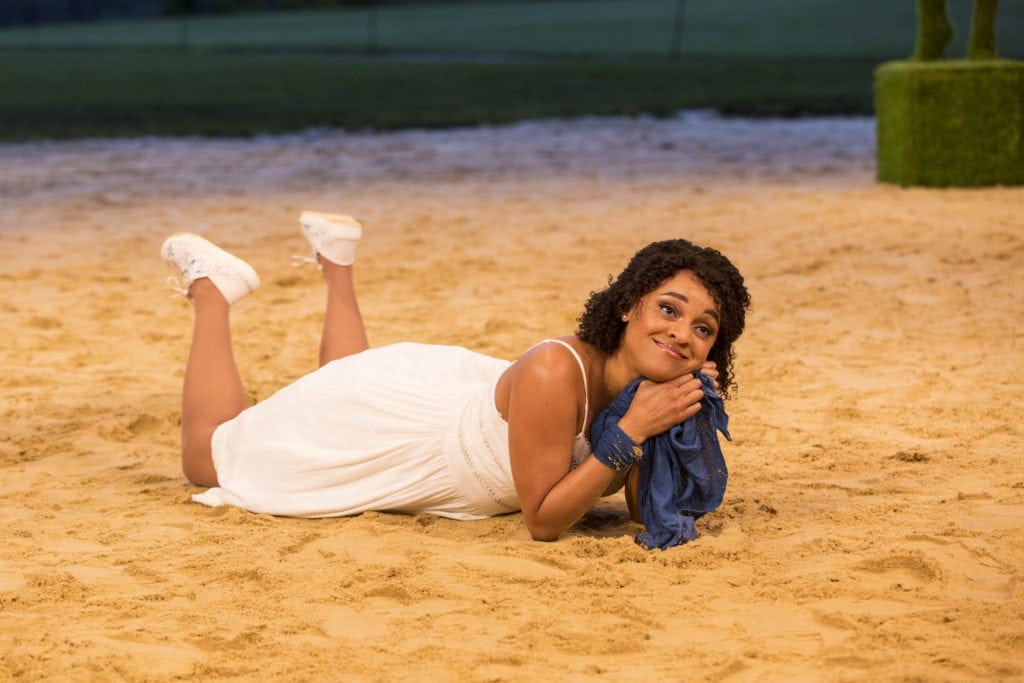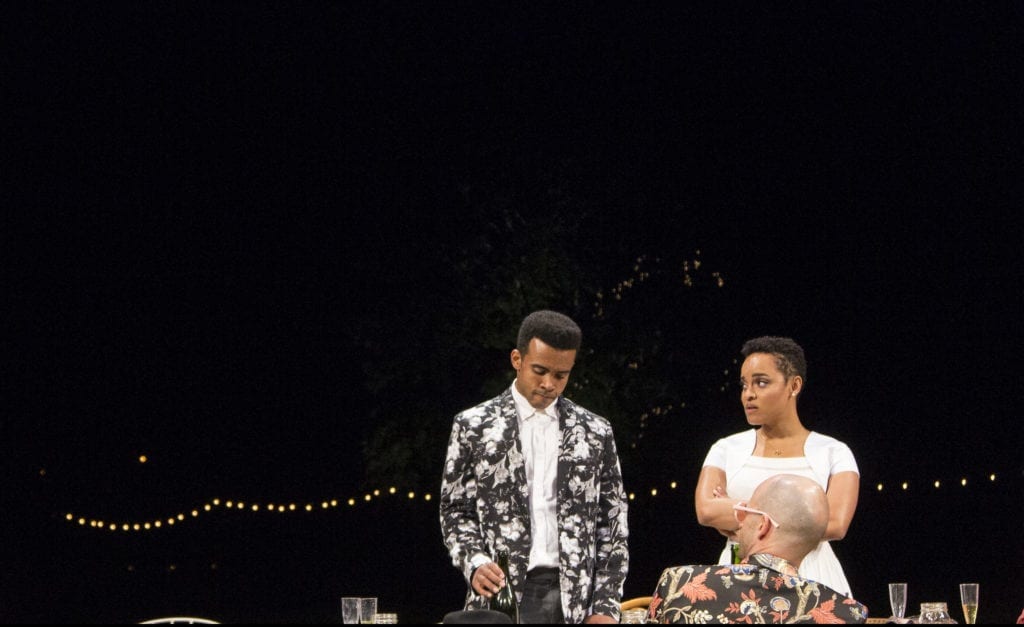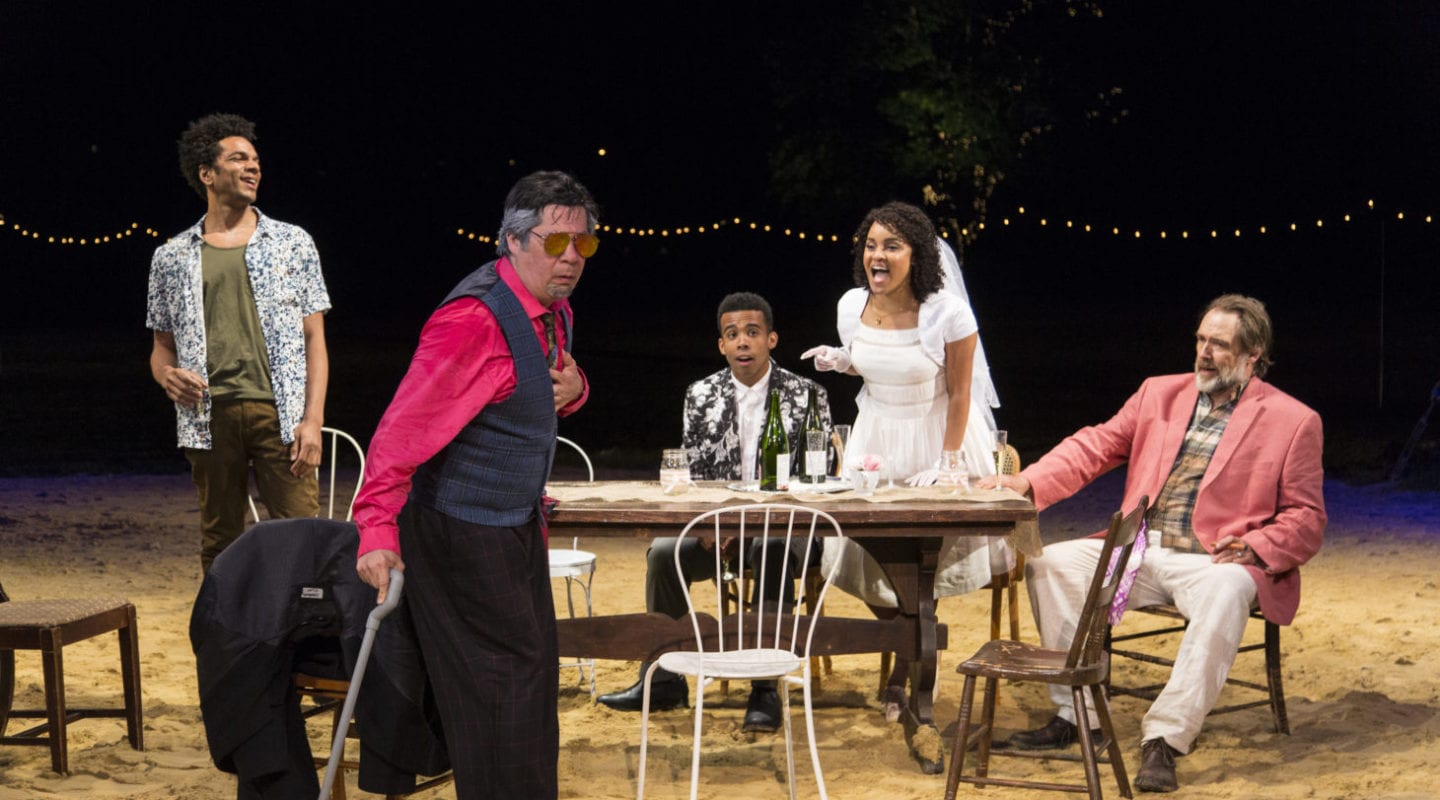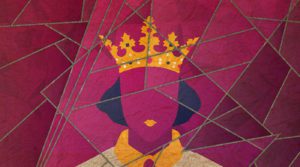Posted August 4, 2018
HVSF Company Member Britney Simpson plays the sugary-sweet, scheming Bianca in this season’s THE TAMING OF THE SHREW. And while the skill required to pull off her expertly-staged dance numbers and angelic vocal interludes may be on full display throughout the show, one of the production’s most electrifying stylistic choices from her point of view comes just before curtain call. She shares her thoughts here…
Half the people on stage in TAMING are people of color.
Obviously, this is amazing and something I think a lot of theaters – including HVSF – need to keep working on. The beauty of Shakespeare, and the reason we’re still performing his work, is that we see how much relevance his plays can have from culture to culture all these years later.
There is significance in our Petruchio being a black man alongside a white Kate, and within their relationship is a negotiation of each individual seeing their own disadvantages as they walk through the world. This story – our story – is an interesting one that culminated from having these two specific actors in these roles. They both are right about their oppression and inherent disadvantages in society, but they both also have a perceived advantage over the other. I think the struggle of power between Liz (Wisan, who plays Kate) and Biko (Eisen-Martin, who plays Petruchio) helps to heighten the tension onstage, and it’s a way different story from one in which a white Petruchio “tames” any woman of color. Can you imagine him starving her and keeping her from sleep, and then loving her at the end for doing what he tells her to? That’s such a different story.
On top of that dynamic, we have our Lucentio (played by Ralph Adriel Johnson) being a man of color and a scholar and the son of a wealthy man, who is also a person of color. For Bianca to also be a woman of color and to be considered the fair, the virtuous, the desired one – I’m delighted about that.
During the rehearsal process, I requested to have a wig as Bianca because my hair is naturally short – a pretty edgy cut. I just didn’t think that it screamed Bianca, someone who lives within this machismo patriarchal world. I wanted her to adhere to the stereotypes we associate with beautiful women, including longer hair. Initially I thought her hair should have a more European style and color, but that choice would have told a completely different story than what eventually ended up on stage. That wouldn’t have just been about society’s standards of beauty for women, but society’s standards of beauty for women of color.

Hair has historical significance in the African American community. Throughout our history here in America, our hair has been something we were condemned for, and something seen as less beautiful. Wigs became a really prominent way to cover up our natural texture in an effort to make the white world around us more comfortable, and to succeed in the world. It was believed we couldn’t attract men without wigs, or get decent jobs without straightening our hair. We were taught to hate our hair.
On this team, our director, costume designer, and leading lady were all white women. It felt like the only statement I could make about who I, Britney, was within this role was to wear a wig, and I think what we finally settled on – less European, more me – allows the act of me removing the wig at the end of the show to be more defiant. As in, “this is me. I’m stronger than what you expected. This is me in my natural state for the first time, and I put this wig on to please you, suitors.”
Bianca’s marriage to Lucentio leads her to discover that he’s still a little boy, he’s still playing games, and that he lied to get to her. At that point, there is no more need to put on a front. At what moment can I, Bianca, make it clear that I’m taking off my cover and throwing away what you think I should be? Though I’m now imprisoned in this marriage, the first time I’m the freest version of myself is when that wig comes off.

Lucentio’s world is rocked. Suddenly, I’m not who he fell in love with because my hair held so much meaning. And suddenly, he’s left to see how similar I am at heart to my sister. Kate and Bianca were raised by the same father, Baptista. He doesn’t tell Kate to change, and he doesn’t worry about Bianca because he knows that she can play the game. (An aside: I love the direction of Bianca and Kate’s scene together. It’s the only scene in which just women are on the stage, and a scene in which they’re just talking to each other as sisters do.)
And all becomes clear by show’s end. Bianca is revealed as shrewd, making jokes about Gremio being a cuckhold. The suitors are all, “WHO IS THIS BIANCA?!” But she was on stage the whole time, and we just had to find that moment of exposure so the audience could really see what we, the characters, see: a strong woman who has been unhappily tamed by her marriage, getting drunk and being honest. She’s who we thought Kate was all along.



